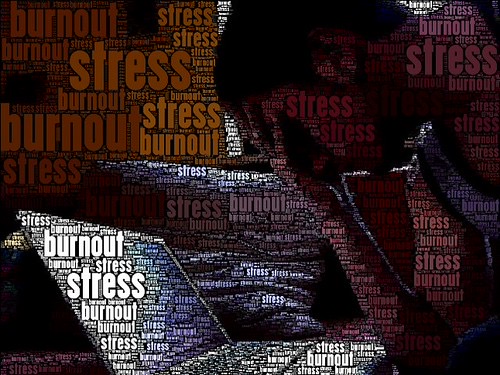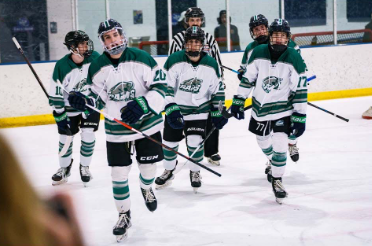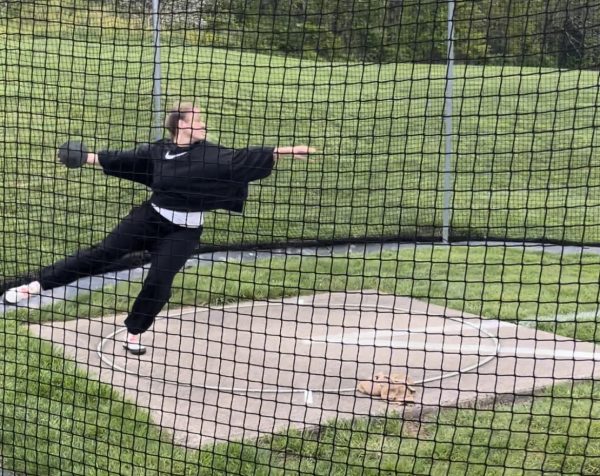Mental Health Crisis in Sports

Hangout Lifestyle
Stress and Burnout
It is a commonly known fact that playing sports can reap benefits such as improved focus, reduced anxiety, and boosted self-esteem. However, the drawbacks athletes face are often left out of the conversation.
A huge risk that athletes face is developing Chronic Traumatic Encephalopathy, also known as CTE. The Alzheimer’s Association defines Chronic traumatic encephalopathy as a “progressive and fatal brain disease associated with repeated traumatic brain injuries (TBIs), including concussions and repeated blows to the head.” CTE is also connected to the development of other degenerative brain diseases such as Alzheimer’s and Dementia. Common symptoms include depression, lack of judgment, memory loss, uncontrollable rage, etc. A traumatic brain injury is not limited to a concussion. In 2012, Purdue University conducted a study where they followed 21 high school football players throughout their season. Of those 21 students, four of them were not diagnosed with a concussion. Despite this, those four players had just as much brain injury, if not more, than those athletes diagnosed with concussions.
Concussions and traumatic brain injuries could lead to an athlete’s career ending. Ryan Bennet, the lacrosse goalie at Pennridge High School, has been playing lacrosse for the past five years. She has been playing since seventh grade and enjoys playing the sport. Although she enjoys the sports and loves playing, she has also felt the strain of suffering from a concussion, “My concussion made me consider quitting and stop playing, but the team is another family to me, and I didn’t want to give that up.”
The chances of athletes suffering from these diseases are only heightened due to another problem prevalent in sports. Athletes often shy away from reporting a concussion or bad mental health. The Associated Press conducted a study in 2009 analyzing how many professional NFL players have chosen not to report a concussion. 20 percent of the 160 football players said that they downplayed or didn’t report any symptoms of a head injury. This taboo subject can be connected to athletes’ increased risk of eating disorders, substance abuse, anxiety, and depression.
Dean Behrens is a guidance counselor and coaches basketball at Pennridge High School. When asked about the mental health setbacks he has observed in athletes, Behrens responded, “Over the years, there have been a couple of players that have struggled with mental health. We get the parents involved and get them hooked up with some professionals. When you’re dealing with it, you keep it confidential. You can’t see mental health, whereas you can with a broken bone.” He continued, “Mental health can affect anyone. Lane Johnson, an eagles player, has had a lot of issues with mental health and left the team for five weeks, and not many players are going to do that. Over the last couple of years, we have gotten better with it. It’s not so bad to say you are struggling with your mental health.”
Professional athletes such as Abby Wambach, Naomi Osaka, Michael Phelps, and Amanda Beard have all spoken out about the mental pressures athletes face and call for better mental health outlets in sports. While there has been progress, there are still many improvements to be made.
https://health.clevelandclinic.org/mental-health-in-athletes/
https://timely.md/blog/student-athlete-mental-health/
https://www.christiecampus.com/stay-informed/blog/april-2021/college-athlete-mental-health-article
https://med.nyu.edu/departments-institutes/population-health/divisions-sections-centers/medical-ethics/education/high-school-bioethics-project/learning-scenarios/the-nfl-brain-injury#:~:text=CTE%20has%20been%20found%20to,after%20one%20stops%20playing%20football.
https://link.springer.com/article/10.1007/s40279-016-0492-2
Madison Hapak, Grade 12. Interests/hobbies include crocheting, working with animals, art, and hanging out with friends. Madison plans to go to attend Drexel...








